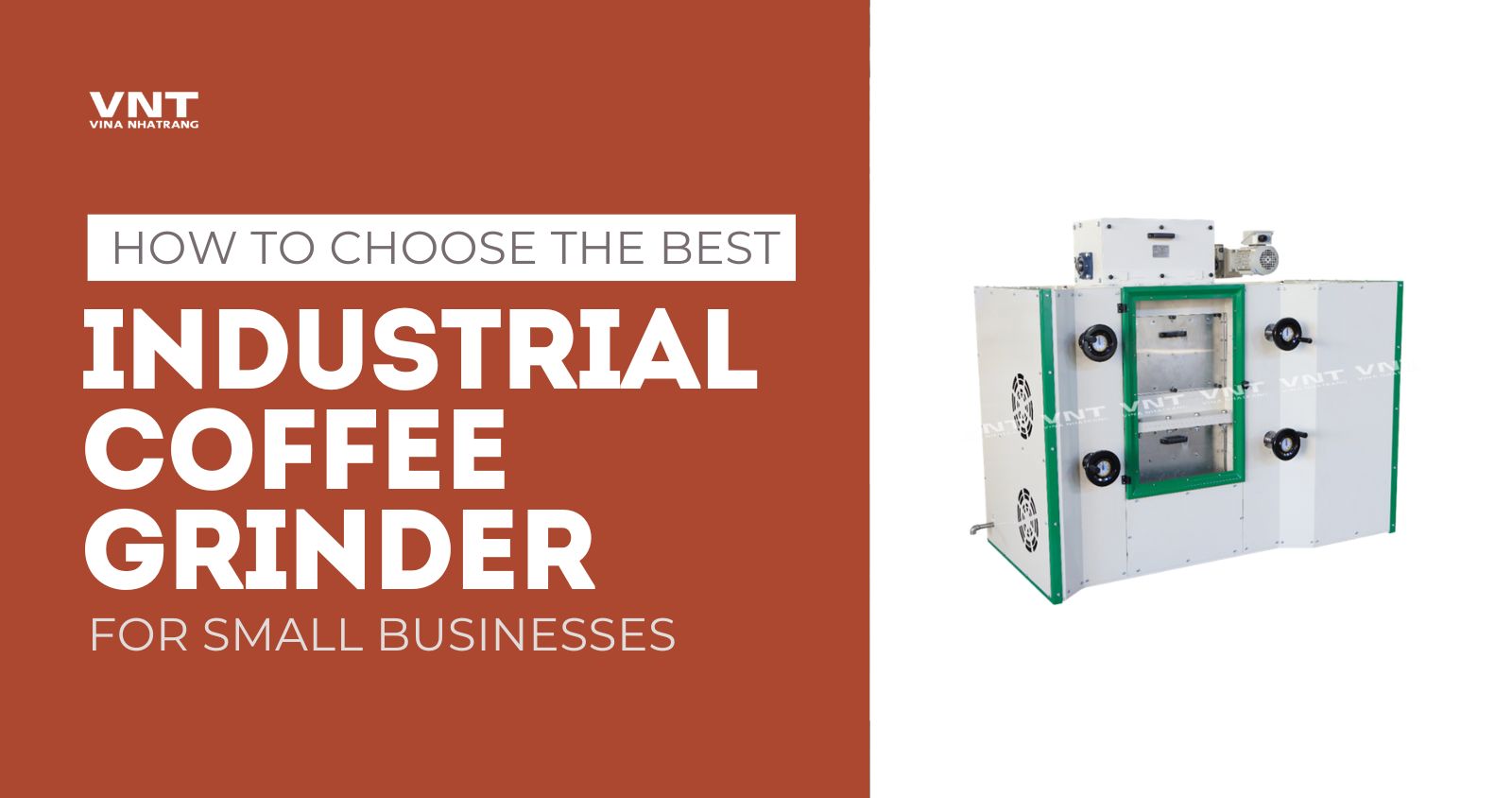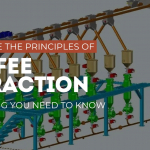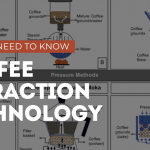Choosing the right industrial coffee grinder is crucial for small to medium coffee shops and coffee plants. It’s not just about the capacity; it’s about ensuring the quality of the coffee grounds, which directly impacts the taste of your coffee beverages. Here’s a comprehensive guide to help you make an informed decision.
Need an Industrial Coffee Grinder? Explore VNT’s Industrial Coffee Grinder
Understanding Industrial Coffee Grinding
Before we jump into the details of different industrial coffee grinder models, it’s really important to grasp the fundamentals of industrial coffee roasting. Industrial coffee grinding refers to the process of breaking down whole bean coffee into tiny particles using specialized equipment designed for commercial use.
This process is crucial in coffee processing as it significantly impacts the quality of the brewed coffee by affecting extraction and aroma retention. Industrial coffee grinders are designed to produce excellent particle uniformity and enhance the efficiency of daily workflows in coffee businesses, such as cafes and roasteries.
Industrial Coffee Grinder come in various types, including gourmet disc-style technologies and industrial roller-style technologies, each suited for different applications and grind sizes.
Types of Industrial Coffee Grinders
Explore our comprehensive guide on Types of Industrial Coffee Grinders
There are two main types of industrial coffee grinders: conical and flat burr grinders. Each has its unique attributes:
- Conical Grinders: These are the most common type of grinder. They work by slicing the coffee beans into a fine powder. They are known for their consistency and ease of use.
- Flat Burr Grinders: These grinders press the beans together until they break down, extracting the rich oils stored within the beans. This method enhances the overall flavor of the coffee. They are preferred by professional baristas and commercial coffee establishments for their impressive performance
Key Factors to Consider when choosing an Industrial Coffee Grinder
When selecting a industrial coffee grinder, it’s essential to consider several key features to ensure you’re choosing the right equipment for your business’s needs. Here’s an expanded look at these features:
Capacity
The capacity of a grinder is a critical factor to consider, as it directly impacts the volume of coffee you can prepare at any given time. For small coffee shops or cafes, a grinder with a capacity of around 500 kg/hour might suffice. However, as your business grows, you may need to upgrade to a grinder with a higher capacity. For medium-sized coffee plants, a 1000 kg/hour grinder could be the right choice, while larger establishments might require a 1500 kg/hour or even a 2000 kg/hour grinder to meet their coffee consumption demands
Grind Size
The grind size is another crucial aspect, as it affects the extraction of flavors from the coffee beans. Fine grinds are preferred for espresso, as they allow for a more even extraction of flavors and aromas. On the other hand, coarser grinds are better suited for filter coffee, as they provide a fuller body and a richer flavor profile. The grind size should be adjustable to cater to the different brewing methods you offer
Blade Speed
A higher blade speed is essential for maintaining the freshness of the coffee grounds. Faster grinding ensures that the coffee is ground just before brewing, preserving its flavor and aroma. Look for grinders with adjustable blade speeds to optimize grinding efficiency based on your operational needs
Construction
The construction of the grinder is a testament to its durability and longevity. Grinders made from high-quality materials such as stainless steel and aluminum are more resistant to wear and tear, ensuring that your investment lasts for years. These materials also contribute to the grinder’s overall performance, providing a more consistent grind
Ease of Use
Ease of use is a significant factor, especially in a fast-paced environment like a coffee shop or plant. The grinder should be user-friendly, with easily accessible controls for adjusting the grind size and dose. This not only makes the grinding process more efficient but also reduces the learning curve for new staff members.
Additional Features
Consider additional features that can enhance your coffee-making process. For instance, some grinders come with a bean hopper capacity that influences the batch size capability, allowing for more efficient coffee preparation. The type of grinder (manual vs. electric) can also impact workflow efficiency and grind consistency. Manual grinders offer a customized coffee experience, while electric grinders provide precision and consistency
Maintenance and Cleaning
Regular maintenance and cleaning of your commercial coffee grinder are crucial for ensuring longevity and consistent quality of coffee grounds. This includes cleaning the machine regularly and adjusting the grind settings based on the type of coffee bean used. Proper maintenance can extend the life of your grinder and ensure that it continues to produce high-quality coffee grounds
Choosing the Right Grinder
| Model | Capacity (Kg/hour) |
| MXR – 200 | 200 |
| MXR – 500 | 500 |
| MXR – 1000 | 1000 |
| MXR – 1500 | 1500 |
| MXR – 2000 | 2000 |
Vina Nha Trang Engineering JST (VNT) offers 5 models of industrial coffee grinder, here’s how to choose the best one:
- Model MXR – 200: Ideal for small coffee shops with low to moderate coffee consumption.
- Model MXR – 500: Suitable for medium-sized coffee shops or cafes with moderate to high coffee consumption.
- Model MXR – 1000: Best for medium to large coffee plants or cafes with high coffee consumption.
- Model MXR – 1500: Recommended for large coffee plants or cafes with very high coffee consumption.
- Model MXR – 2000: Perfect for the largest coffee plants or cafes with exceptionally high coffee consumption.
Conclusion
Contact our experts to get a consultation on choosing the best Industrial Coffee Grinder that fits you business needs
Choosing the right industrial coffee grinder is a critical investment for your coffee business. It’s not just about the capacity; it’s about ensuring the quality of the coffee grounds, which directly impacts the taste of your coffee beverages. By understanding your business needs, considering the key features of commercial coffee grinders, and selecting the right model based on your capacity, you can ensure the success of your coffee shop or coffee plant.




